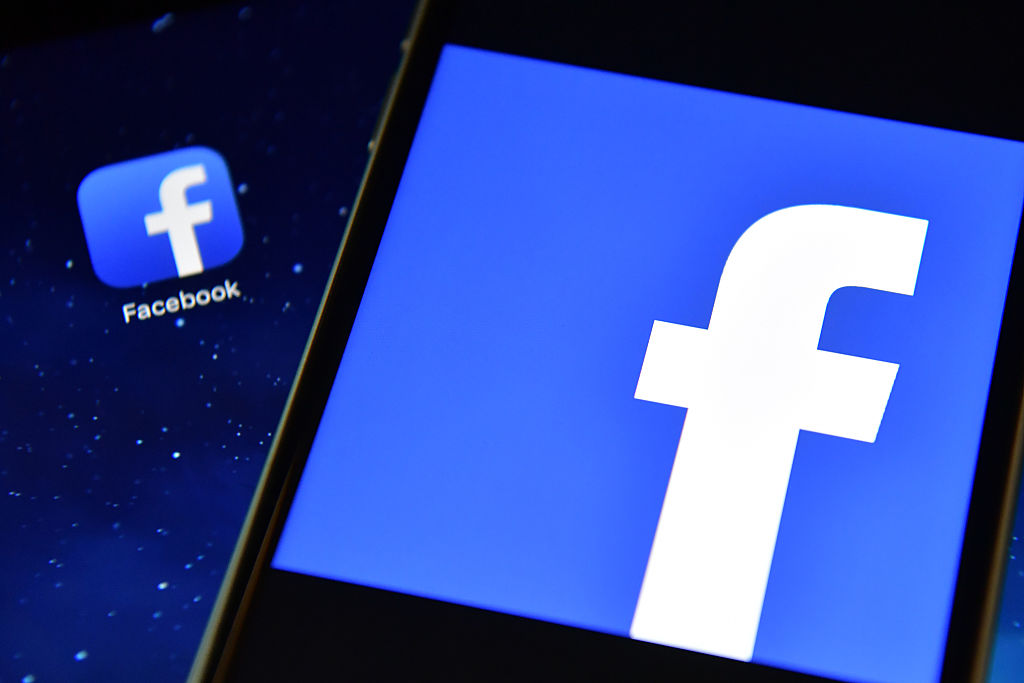Facebook employees reportedly argue for making post-election 'calmer, less divisive' news feed permanent


A free daily email with the biggest news stories of the day – and the best features from TheWeek.com
You are now subscribed
Your newsletter sign-up was successful
Facebook reportedly tweaked its algorithm after the election in a way that resulted in a "calmer" news feed — and some employees are pushing for this to become the new normal.
After seeing election misinformation going viral following Election Day, Facebook instituted an "emergency" algorithm change that involved having authoritative news appear more prominently in users' feeds, The New York Times reports. The algorithm was reportedly adjusted to give greater weight to "news ecosystem quality" scores, which Facebook uses to rank publishers based on journalism quality. As a result, the Times reports, mainstream publications like CNN, The New York Times, and NPR received a "spike in visibility," while partisan pages like Breitbart and Occupy Democrats were less visible.
"It was a vision of what a calmer, less divisive Facebook might look like," the Times writes. "Some employees argued the change should become permanent, even if it was unclear how that might affect the amount of time people spent on Facebook. In an employee meeting the week after the election, workers asked whether the 'nicer news feed' could stay."
The Week
Escape your echo chamber. Get the facts behind the news, plus analysis from multiple perspectives.

Sign up for The Week's Free Newsletters
From our morning news briefing to a weekly Good News Newsletter, get the best of The Week delivered directly to your inbox.
From our morning news briefing to a weekly Good News Newsletter, get the best of The Week delivered directly to your inbox.
Facebook executives, however, have said that that its election changes were "always meant to be temporary."
The Times' report also includes details about some other changes Facebook reportedly considered, one of which would retroactively inform more users that they shared misinformation, something that's now done specifically with COVID-19 misinformation. But according to the Times, this was rejected over concerns it would "disproportionately" affect right-wing sites. Another change that would involve demoting content seen as being "bad for the world" reportedly was shown to lead to a decrease in sessions, so Facebook approved a different change leaving "more objectionable posts" in news feed while not decreasing sessions.
A Facebook executive denied that those were the reasons for the features being rejected, telling the Times, "No News Feed product change is ever solely made because of its impact on time spent."
A free daily email with the biggest news stories of the day – and the best features from TheWeek.com
Brendan worked as a culture writer at The Week from 2018 to 2023, covering the entertainment industry, including film reviews, television recaps, awards season, the box office, major movie franchises and Hollywood gossip. He has written about film and television for outlets including Bloody Disgusting, Showbiz Cheat Sheet, Heavy and The Celebrity Cafe.
-
 ‘This is something that happens all too often’
‘This is something that happens all too often’Instant Opinion Opinion, comment and editorials of the day
-
 House votes to end Trump’s Canada tariffs
House votes to end Trump’s Canada tariffsSpeed Read Six Republicans joined with Democrats to repeal the president’s tariffs
-
 Bondi, Democrats clash over Epstein in hearing
Bondi, Democrats clash over Epstein in hearingSpeed Read Attorney General Pam Bondi ignored survivors of convicted sex offender Jeffrey Epstein and demanded that Democrats apologize to Trump
-
 Epstein files topple law CEO, roil UK government
Epstein files topple law CEO, roil UK governmentSpeed Read Peter Mandelson, Britain’s former ambassador to the US, is caught up in the scandal
-
 Iran and US prepare to meet after skirmishes
Iran and US prepare to meet after skirmishesSpeed Read The incident comes amid heightened tensions in the Middle East
-
 EU and India clinch trade pact amid US tariff war
EU and India clinch trade pact amid US tariff warSpeed Read The agreement will slash tariffs on most goods over the next decade
-
 Israel retrieves final hostage’s body from Gaza
Israel retrieves final hostage’s body from GazaSpeed Read The 24-year-old police officer was killed during the initial Hamas attack
-
 China’s Xi targets top general in growing purge
China’s Xi targets top general in growing purgeSpeed Read Zhang Youxia is being investigated over ‘grave violations’ of the law
-
 Panama and Canada are negotiating over a crucial copper mine
Panama and Canada are negotiating over a crucial copper mineIn the Spotlight Panama is set to make a final decision on the mine this summer
-
 Why Greenland’s natural resources are nearly impossible to mine
Why Greenland’s natural resources are nearly impossible to mineThe Explainer The country’s natural landscape makes the task extremely difficult
-
 Iran cuts internet as protests escalate
Iran cuts internet as protests escalateSpeed Reada Government buildings across the country have been set on fire
